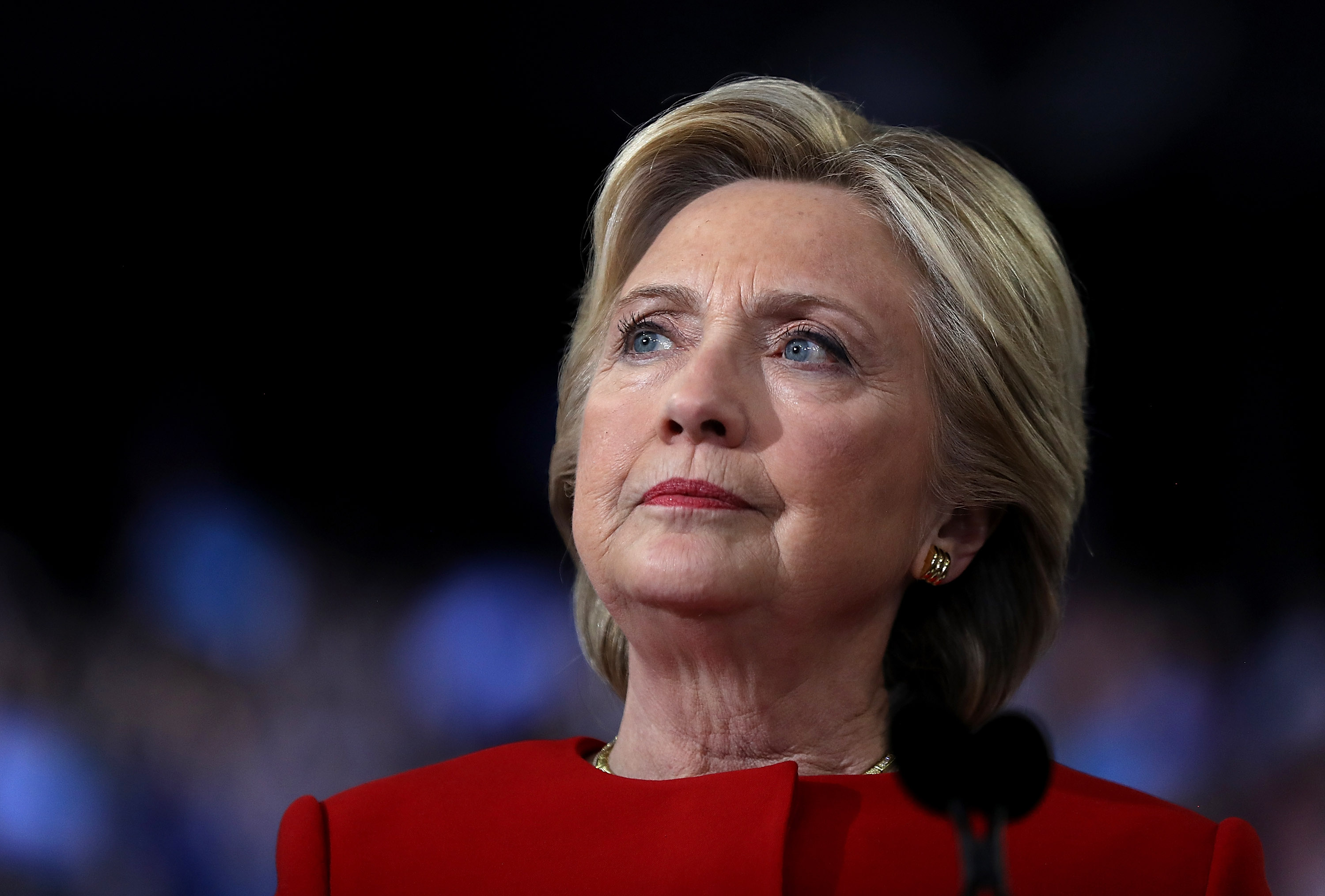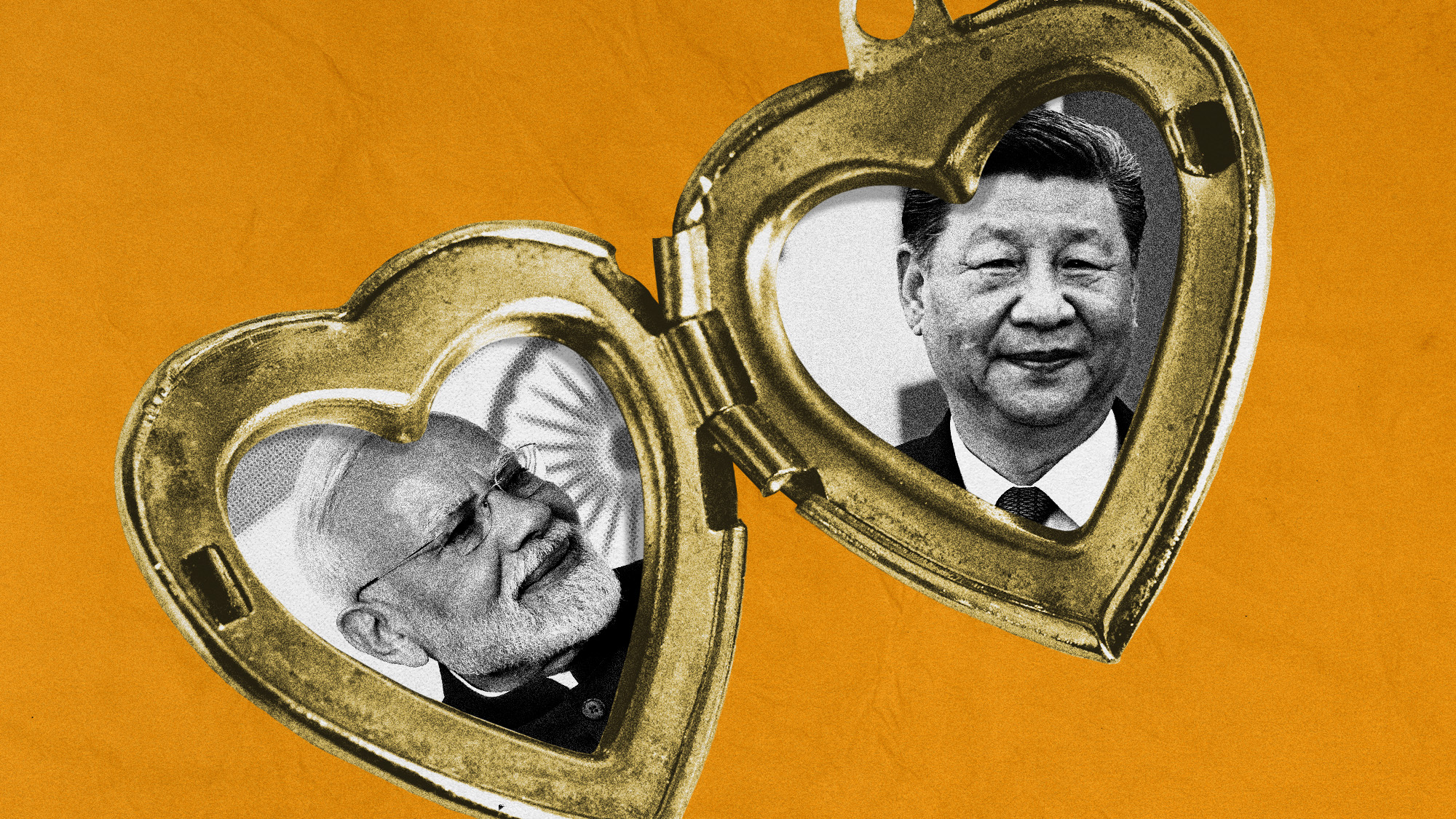Every critique of Hillary Clinton is not sexist
What Rebecca Traister gets wrong about a terrible candidate

Hillary Clinton is angry. She's angry at the media. She's angry at Donald Trump. She's angry at Bernie Sanders. New York magazine's Rebecca Traister is angry, too — but mostly at us, for not letting Hillary Clinton rage.
Last week, Traister wrote a piece highlighting the role Clinton's anger, or rather her inability to show it, played in both her 2016 defeat and the negative reviews of her new memoir, What Happened. Traister argues that because Hillary is a woman, she was uniquely tone-policed in a way that inhibited her ability to connect with voters. Yet despite Traister's insistence that critiques of Clinton and her memoir are actually rooted in sexism, it's apparent that, once again, identity is simply being leveraged to distract from legitimate critiques of the candidate.
It's certainly true that Clinton has been the victim of sexism throughout her career. In the 1990s, the former first lady was famously pilloried for not having "stayed home and baked cookies and had teas," choosing to pursue a career instead. "You don't really fit the image we have created for the governor's wife in Arkansas," harangued a constituent back in 1979. "You don't have any children. You don't use your husband's name. You practice law." And in the course of her 2016 campaign, Hillary had to endure grossly gendered merchandise, disproportionate attention to her appearance, skepticism about her ability to be rational and level-headed in the face of pressures intrinsic to the Oval Office, and public stalking.
The Week
Escape your echo chamber. Get the facts behind the news, plus analysis from multiple perspectives.

Sign up for The Week's Free Newsletters
From our morning news briefing to a weekly Good News Newsletter, get the best of The Week delivered directly to your inbox.
From our morning news briefing to a weekly Good News Newsletter, get the best of The Week delivered directly to your inbox.
But in What Happened, Hillary characterizes her gender as an almost insurmountable obstacle. Even her vocal coach apparently admitted that he could not think of a single example of "a woman in public life who has pulled this off successfully."
Traister seems to agree, offering as proof the sexism experienced by several other prominent female Democrats. Sen. Kirsten Gillibrand (D-N.Y.) was described by Fox News' Tucker Carlson as "positively unglued" after she forcefully denounced sexual harassment in the military. Sen. Kamala Harris (D-Calif.) was called "hysterical" by Trump adviser Jason Miller after she sparred with Attorney General Jeff Sessions at a Senate hearing. Sen. Elizabeth Warren (D-Mass.) was characterized as "shrill ... unmeasured and almost unhinged" by Morning Joe co-host Mika Brzezinski. And just "[r]ecall the treatment of Michelle Obama in 2008," Traister implores. No woman, she implies, can escape the limits of gender.
I'm less pessimistic.
First off, Miller and Carlson are right-wing and unlikely to support any Democratic presidential candidate, regardless of gender. Brzezinski, meanwhile, is a centrist at best and unlikely to support a leftist like Warren. While gender certainly affected the character of all three critiques, it seems unlikely that it affected their existence as such.
A free daily email with the biggest news stories of the day – and the best features from TheWeek.com
More importantly, though, Gillibrand, Harris, Warren, and Obama actually serve as counterpoints to Traister's thesis. Unlike Clinton, each of these women enjoys incredible popularity among the Democratic Party. In fact, for all that Michelle Obama has been cruelly attacked for her identity, her "when they go low, we go high" speech was perhaps one of the most resonant and defining moments of the Democratic National Convention. If Hillary failed to communicate effectively, gender seems an inadequate scapegoat.
So what's Traister driving at? In essence, she's seeking to absolve Hillary Clinton of her many sins by reducing every criticism of her to sexism.
Traister attempts to hedge against this argument, writing that Hillary does take responsibility for her loss to Trump in What Happened. In Traister's telling, Hillary is her own worst critic. As proof, Traister offers a couple of milquetoast examples from the book: "My mistakes burn me up inside," Clinton writes of the Goldman Sachs speeches which angered millions of voters whose savings were decimated by Wall Street misconduct. Hillary also admits to being "boneheaded" with respect to her email server, but the "blistering" self-flagellation Traister anticipates is unforthcoming.
Undermining her own narrative, Traister goes on to use sexism as cover for Hillary's unforced errors. For instance, she attributes the backlash to Clinton's "deplorables" speech to a sexist media, ignoring that Barack Obama faced similar criticism for his "clinging to guns and religion" remark in 2012, as did Mitt Romney following his "47 percent" comment.
Moreover, Traister closes with the same, exhausting, blame-shifting argument that lost Hillary the election: "You can disagree with Clinton," Traister writes, "[b]ut she's not lying; she's not inciting violence. She's not freaking out about crowd size or claiming that antifa protesters are as bad as neo-Nazis or suggesting that protesters be taken away on stretchers." In short, Traister argues, she's not Trump, so why are you complaining? If we learn anything from 2016, I hope it's that being "less racist than the other guy" is not absolution for one's own sins.
And Clinton's sins abound. As she did during the election, Clinton continues to compare herself to "the other guy" while losing sight of what she stands for. While Bernie Sanders has spent the past year mobilizing unprecedented support for single-payer health care, Hillary retreated to her wooded home, reappearing only to hawk a book in which she takes pot shots at her popular primary opponent. While Sanders has recruited a number of high-profile Democrats to support his Medicare-for-all bill, Clinton has been drafting petty passages in which she claims to have supported Bernie's progressive policies first. Anger isn't necessarily a problem, but Hillary's indulgence in self-righteousness is.
Her anger feels particularly extraneous when viewed in the context of her substantive political failures — failures that, to her own detriment, she still declines to meaningfully address. These include her choice to run on a status quo platform (repackaged as "pragmatism") during an election season in which outsider status held more cachet than being "qualified," as well as her long history of hawkishness, triangulation, and corporate entanglement.
Traister's analysis also ignores those instances in which Hillary's anger was properly criticized: for example, when Clinton snapped at a Greenpeace activist questioning her receipt of fossil fuel donations. Or when she responded to a young black woman challenging her commitment to diversity with "why don't you go run for something then." Or when, at a New Hampshire town hall, she cut down a woman speaking out of turn by chiding, "You are rude, and I will never call on you." Hillary's anger might at times be justified — it can't have been easy to respond to accusations about her husband's alleged sexual predation — but compare her approach to Obama's when faced with similarly persistent hecklers: Where Hillary reacted defensively, Obama employed humor and patience. Both may have been called angry, but only one can accurately be described as contemptuous.
President Obama is an instructive comparison; as Traister acknowledges, he was similarly encumbered by identity-based prejudice. She points out that, as per Key & Peele's "anger translator" skit, Obama was unable to express outrage because of his race. But what goes unacknowledged in her article is that Obama was able to moderate his persona sufficiently to maintain his relatively high popularity and to secure the office of the presidency. Twice.
Hillary shouldn't be criticized for not being Obama — a man with preternatural grace. It takes significant skill to navigate the burden of a maligned identity and political office with aplomb. But to chalk Clinton's political failures up to identity is to ignore those failings for which she should be held accountable. Identity is a hurdle, but it should not be used as a shield to deflect valid criticism.
It's impossible to prove whether, absent sexism, Hillary would have beaten Trump last November. But it is verifiable that Hillary, her campaign team, and the DNC made significant mistakes which they, and they alone, must own. Given the magnitude of that loss, it's imperative to ensure that misdiagnoses of Hillary's failures do not prevent the party from accessing a cure. The health of the country depends on it.
Briahna Joy Gray is a lawyer and co-host of SWOTI Podcast whose writing has appeared in Current Affairs and Paste Magazine. Follow her on Twitter.
-
 Did Trump just push India into China's arms?
Did Trump just push India into China's arms?Today's Big Question Tariffs disrupt American efforts to align with India
-
 UN votes to end Lebanon peacekeeping mission
UN votes to end Lebanon peacekeeping missionSpeed Read The Trump administration considers the UN's Interim Force in Lebanon (UNIFIL) to be a 'waste of money'
-
 RFK Jr. names new CDC head as staff revolt
RFK Jr. names new CDC head as staff revoltSpeed Read Kennedy installed his deputy, Jim O'Neill, as acting CDC director
-
 Ghislaine Maxwell: angling for a Trump pardon
Ghislaine Maxwell: angling for a Trump pardonTalking Point Convicted sex trafficker's testimony could shed new light on president's links to Jeffrey Epstein
-
 The last words and final moments of 40 presidents
The last words and final moments of 40 presidentsThe Explainer Some are eloquent quotes worthy of the holders of the highest office in the nation, and others... aren't
-
 The JFK files: the truth at last?
The JFK files: the truth at last?In The Spotlight More than 64,000 previously classified documents relating the 1963 assassination of John F. Kennedy have been released by the Trump administration
-
 'Seriously, not literally': how should the world take Donald Trump?
'Seriously, not literally': how should the world take Donald Trump?Today's big question White House rhetoric and reality look likely to become increasingly blurred
-
 Will Trump's 'madman' strategy pay off?
Will Trump's 'madman' strategy pay off?Today's Big Question Incoming US president likes to seem unpredictable but, this time round, world leaders could be wise to his playbook
-
 Democrats vs. Republicans: which party are the billionaires backing?
Democrats vs. Republicans: which party are the billionaires backing?The Explainer Younger tech titans join 'boys' club throwing money and support' behind President Trump, while older plutocrats quietly rebuke new administration
-
 US election: where things stand with one week to go
US election: where things stand with one week to goThe Explainer Harris' lead in the polls has been narrowing in Trump's favour, but her campaign remains 'cautiously optimistic'
-
 Is Trump okay?
Is Trump okay?Today's Big Question Former president's mental fitness and alleged cognitive decline firmly back in the spotlight after 'bizarre' town hall event